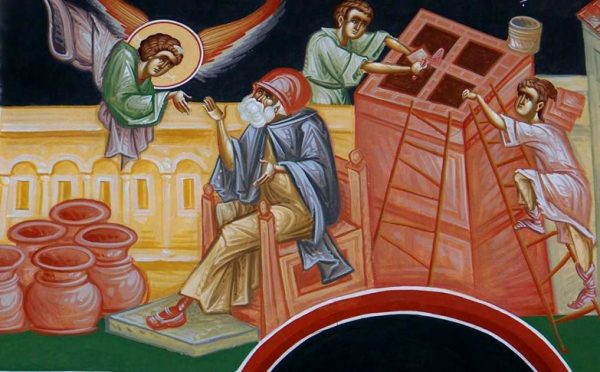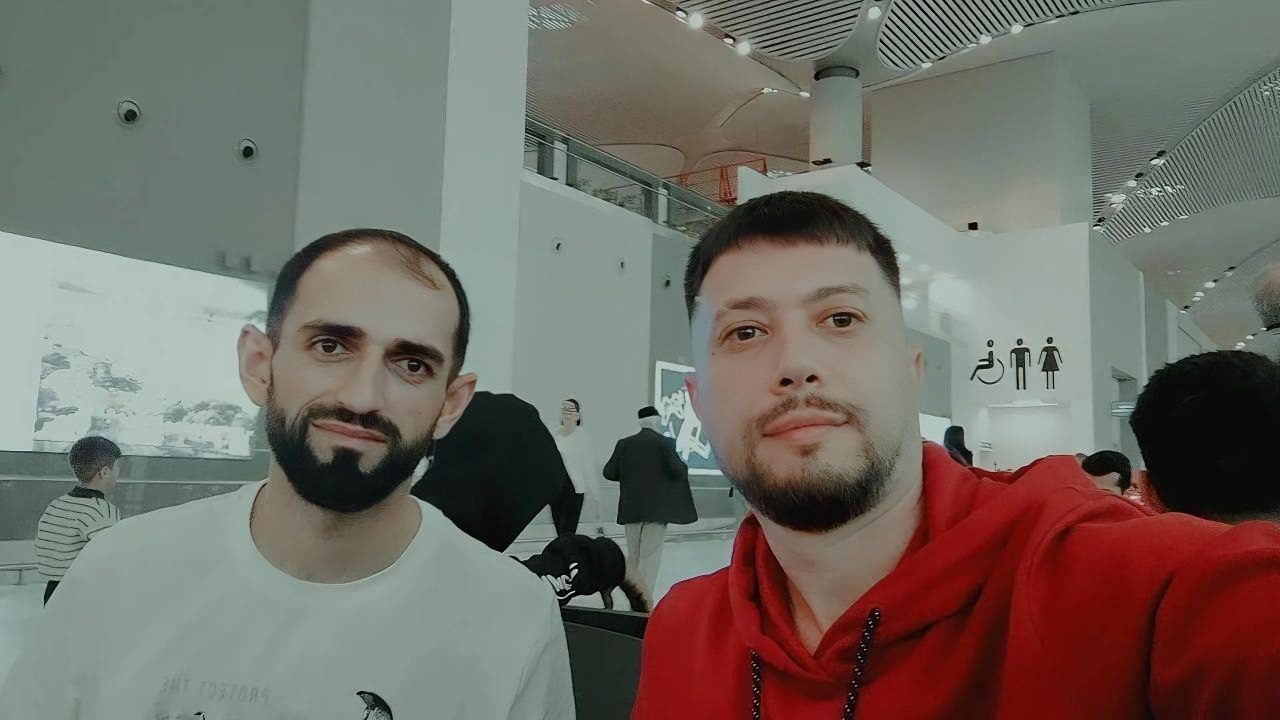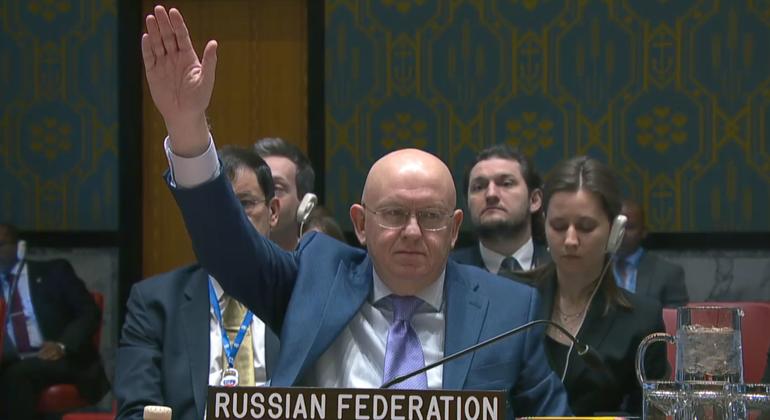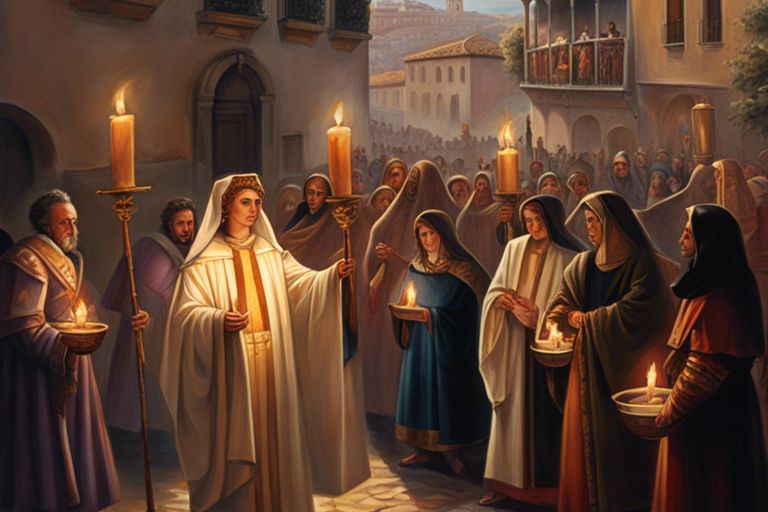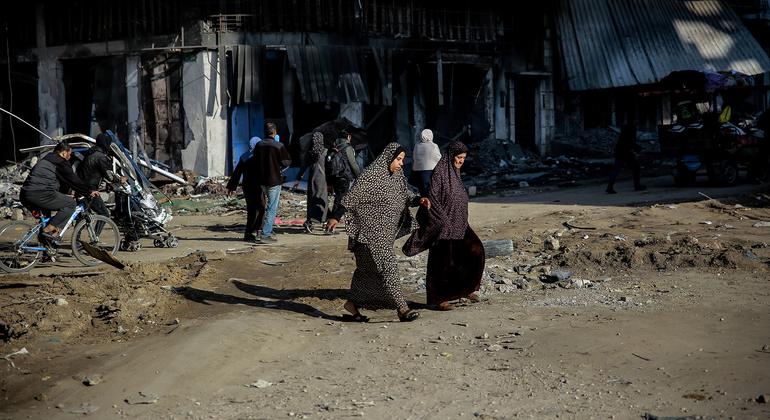By prof. A.P. Lopukhin
Chapter 12. 1 – 12. Exhortations for open confession of faith. 13 – 21. The parable of the foolish rich man. 22 – 34. On the gathering of earthly treasures. 35 – 48. On vigilance and faithfulness. 49 – 53. About the struggle that Christ’s followers will have to endure. 54 – 59. About the signs of the times.
Luke 12:1. In the meantime, when a crowd of tens of thousands had gathered, so they were crowding one another, He spoke first to His disciples: beware of the leaven of the Pharisees, which is hypocrisy.
In the next part (up to verse 13), the evangelist Luke adheres to the Gospel of Matthew or to that source which was close to this Gospel (cf. Matt. 10:17-33).
“beware of the leaven of the Pharisees”, (cf. Matt. 16:6).
“which is hypocrisy”. i.e. beware, because that leaven which permeates the entire nature of the Pharisee is hypocrisy (cf. Matt. 6:2).
Luke 12:2. There is nothing hidden that will not be discovered, and nothing secret that will not be known;
What is the relationship of the speech to the preceding verse? Undoubtedly, the Lord now points out the futility of hypocrisy: the truth will surely come to light in time anyway (cf. Matt. 10:26 – 27).
Luke 12:3. therefore what you have said in the dark will be heard in the open; and what you have spoken by ear in secret places shall be proclaimed from the housetops.
Some interpret this as applying it to the preaching of the apostles, which was at first concealed, and then, with the victory of Christianity, proclaimed openly. But it is simpler and more natural to see here a continuation of the story about the futility of hypocrisy: no matter how much the hypocrite hides his state of mind, in the end it will still be revealed to everyone.
“in sight”, i.e. in daylight.
Luke 12:4. And to you, My friends, I say: do not be afraid of those who kill the body and then can do nothing more;
(Cf. the interpretation of Matt. 10:28-31).
Hitherto the Lord has spoken of the hypocrites, and now He addresses His friends. From them He expects not hypocritical devotion, but open and honest, fearless service.
Luke 12:5. but I will show you whom to fear: fear Him, who after killing has power to cast into Gehenna; yea, I say unto you, fear Him.
He then encourages them by reminding them of what He Himself experienced and what opposition He encountered. Let them not be afraid of their mission. God Who cares even for the smallest birds when they fall to the ground, Who counts even the very hairs of the head, God Who holds in His hand not merely life and death, but eternal life and eternal death, and of Whom therefore we must to be feared more than the wolves of the earth, dwells with them. He will recognize those whom His Son has recognized and reject those whom He has rejected.
Luke 12:6. Aren’t five sparrows sold for two asari? And not one of them is forgotten by God.
Luke 12:7. And the hairs on your head are all numbered. Therefore, do not be afraid: you are more valuable than many sparrows.
Luke 12:8. And I say to you: whoever confesses Me before men, the Son of Man will confess him before the Angels of God;
Luke 12:9. and whoever denies Me before men, he will be denied before the Angels of God.
Here the Lord exhorts the disciples to a firm confession of their faith and indicates the reward that awaits them for this.
“before God’s Angels”. The Evangelist Luke speaks of “angels” as servants who surround the throne of the heavenly King. Matthew speaks directly about the Heavenly Father, before whom Christ acknowledges His faithful confessors as His.
Luke 12:10. And everyone who speaks a word against the Son of Man will be forgiven; and the one who speaks blasphemy against the Holy Spirit will not be forgiven.
(Cf. Matt. 12:31-32).
From those who profess Christ, the speech passes to the unbelievers in Christ, who will speak against the Son of Man, and from them to the blasphemers of the Holy Spirit.
Luke 12:11. And when they bring you to the synagogues and to the rulers and authorities, do not worry about how or what to answer or what to say;
He warns them that they will have to suffer much during this and especially during their future apostolic activity, because they will be judged and scourged in the synagogues, they will be brought before rulers and kings; but nevertheless they should not be troubled how and what to say, for in that hour they will be given more to say.
Luke 12:12. for the Holy Spirit will teach you in the same hour what you should say.
Luke 12:13. Someone from His people said: Master, tell my brother to divide the inheritance with me.
After the Feast of Tabernacles there were two months before the other solemn Jewish festival, namely, the Renewal of the Temple, and Christ took advantage of this interval of time to visit His native Galilee again, and there, amidst native nature and a small assembly of believers, to the soul To give him a break from the worries he has experienced. His stay there was marked by a number of new and striking parables and miracles. In the parables one cannot fail to notice the echo of the experienced trials, since in them the excessive attachment to the goods of this world is exposed to the point of God and the soul were forgotten, and at the same time that spirit of dead Pharisaism was clearly rebuked which blinded the leaders of the Jewish people to such an extent that they were unable to understand what the greatest good they were depriving themselves of by rejecting the promised Messiah in the person of Christ.
The occasion for the rebuke of excessive attachment to the goods of this world is an occasion when, during the preaching of Christ, one of the listeners suddenly interrupted His discourse and asked Him to help him to achieve a favorable division of property with his disagreeable brother. Such an inappropriate request clearly showed to what extent this man was a miserable slave of this world, and to show the unreliability and vanity of the goods of this world, the Saviour, refusing, of course, to take part in deciding the question of the division of the inheritance, told the parable of a rich man who, having obtained an exceedingly large harvest, did not know what to do with this wealth.
Luke 12:14. And He said to him: Man, who appointed Me to judge or divide you?
Only Luke records this remarkable event. One of Christ’s listeners—at any rate not a disciple of Christ, for a disciple would scarcely have dared to address such a question to Christ in the presence of the people—someone, apparently extremely busy with his work, interrupts Christ with a question or request: “Teacher , tell my brother…”. Apparently, his brother had appropriated for himself the entire inheritance left by the father and wanted the Great Teacher of the people to intercede for him. Perhaps, he thought, his brother would listen to the Master. But the Lord answered him briefly that he was not appointed to deal with the division of properties.
“man” (ἄνθρωπε) – this is the correct translation, not as rendered in our (Russian) version: “He said to this man…”. The Lord calls the one who appeals to Him “man” – an address that indicates a certain disapproval of the request itself (cf. Rom. 2:1, 9:20).
“who hath set Me.” The Lord expressly refuses participation in matters of a purely civil nature. He has come to preach the Gospel, and once it has established itself in the hearts of men, it will itself transform and change the whole order of social life. On the basis of the Gospel, quite just Christian legislation could be developed – internal renewal must lead to external, civil renewal (see: Rozanov N.P. Social – economic life and the Gospel, pp. 1 – 5).
Luke 12:15. And he said to them: watch and beware of self-interest, for the life of man does not consist in multiplying his possessions.
The Lord points out that the motive of the request spoken by “man” is greed, and he exhorts us to fear this feeling.
“from covetousness” (πάσης πλεονεξίας) – from all covetousness in the Greek text, covetousness.
“because life”. Which life? Ordinary physical life or eternal life? From verse 20 it is clear that only the first can be meant here – ordinary existence, the duration of which does not depend on how much wealth a person has managed to accumulate for himself: God suddenly ends the life of the rich and continues the life of the poor.
Luke 12:16. And he told them a parable, saying: a rich man’s field was very fruitful;
After saying that man’s life is not prolonged by the abundance of possessions, the Lord also gives a parable to prove His words. And see how He portrays to us the insatiable thoughts of the foolish rich man. God worked out his purpose and showed special kindness. Because there was a good harvest not in one place, but all over the rich man’s field; and he was so unfruitful in charity, that before he received the harvest, he already kept it to himself. (Blessed Theophylact)
Luke 12:17. and he pondered within himself and said: what shall I do? I will not gather my fruits.
“I have nowhere to gather my fruits”. The rich man, of course, knew that there were thousands of needy people to whom he had to give the surplus of the harvest, but he did not seem to consider himself at all bound to help his fellow men, and thought only of himself, so that calm about the future when there might not be a harvest.
Luke 12:18. And he said: this is what I will do: I will pull down my granaries and build larger ones, and I will gather there all my food and my goods,
Following his own foolish advice, the rich man reasoned that he alone should receive everything, so that he deprived everyone of the benefit, not noticing that not only for his sake, but also for the sake of those in need, his field yielded a good harvest and not for that he should acquire its fruits, and to distribute them also to the poor. For if only for his sake the field yielded a good harvest, then only what was sufficient for him would grow. (Evthymius Zygaben)
Luke 12:19. and I will say to my soul: soul, you have many goods prepared for many years: rest, eat, drink, be merry.
“I will tell my soul”. The soul is here taken as the “‘seat of the sensual'”: it will feel the pleasure that wealth will give to man (“soul” in Greek ψυχή is precisely the lower side of the soul life, as opposed to πνεύμα, the higher side of this life).
Luke 12:20. But God said to him: fool, tonight they will ask for your soul; and what you have prepared, who will have it?
“God said to him”. When and how is not said; these ambiguities are characteristic of parables in general (blessed Theophylact).
“they will ask you” (ἀπαιτοῦσιν, lit. demand). Again not told who. It is possible, of course, to see Angels here – “the Angels of death, who tear away the soul of the resisting lover of life” (blessed Theophylact; cf. Luke 16:22).
Luke 12:21. So it is with the one who gathers wealth for himself and does not become rich in God.
“gets rich in God” (εἰς θεὸν πλουτῶν) does not mean: collects wealth in order to use it for the glory of God, because in this case the preceding expression “gathers wealth” (θησαυρίζειν) would not be there, and the opposition would consist only in the various purposes of enrichment, while doubtless the Lord opposes “enrichment in general” to total indifference to the accumulation of property.
It cannot be a question of gathering up the unsearchable riches – the goods of the Messianic kingdom, because that would still be gathering up treasures “for oneself”, though of a different kind. Therefore, there is nothing left but to accept the interpretation of B. Weiss, according to which “to be rich in God” means to be rich in goods that God himself recognizes as goods (cf. the expression of verse 31: “seek first the Kingdom of God” ).
Luke 12:22. And he said to his disciples: therefore I say to you: do not worry about your soul, what you will eat, nor about your body, what you will wear:
This and the following sentences, which reveal the idea of the parable of the foolish rich man, are placed in the Gospel of Matthew in the Sermon on the Mount (see the interpretation of Matt. 6:25-33).
Luke 12:23. the soul is worth more than food, and the body than clothing.
Luke 12:24. Look at the crows, that they neither sow nor reap; they have no hiding place, no granary, and God feeds them; and how much more precious are you than the birds!
Luke 12:25. And which of you, by taking care, can add a cubit to his height?
Luke 12:26. So if you can’t do the least, why bother with the rest?
Luke 12:27. Look at the lilies, how they grow: they toil not, nor betray; but I tell you that not even Solomon in all his glory was clothed like any one of them.
Luke 12:28. And if the grass of the field, which today is there, and tomorrow is thrown into the furnace, God so clothes, how much more you, you of little faith!
Luke 12:29. Therefore you also do not seek what to eat or what to drink, and do not worry,
“do not worry” (μὴ μετεωρίζεσθε) – it is more correct to translate “don’t worry too much” about your demands on life in general.
Luke 12:30. for all these things seek the Gentiles of the world; and your Father knows that you need it;
Luke 12:31. but seek ye the kingdom of God, and all these things shall be added unto you.
Luke 12:32. Fear not, little herd! Because your Father has been pleased to give you the kingdom.
“Fear not, little herd.” These words are found only in the evangelist Luke. Here the Lord gives assurance to His disciples that their pursuit of the kingdom of God (verse 31) will achieve its goal. And they may have feared precisely that they might not enter that kingdom, because in any case they were only an extremely small circle (“little flock”), while in the Old Testament, according to the then generally accepted understanding, the kingdom of the Messiah was intended for all the chosen people. “What do we actually represent? – maybe the apostles thought. – What will this “kingdom” be like, in which there will be only us and a few more followers of Christ?”. But the Lord dispels all their doubts by pointing out the “favor” of God: The Kingdom will open before you (cf. Luke 22:29ff.) – of course, the glorious Heavenly Kingdom of the Messiah.
Luke 12:33. Sell your possessions and give alms. Prepare purses that do not wear out, treasure in the heavens that does not fail, where a thief does not come near, and which a moth does not damage;
“Sell your properties”. This goal is so important that you must sacrifice your earthly possessions for it. This already applies not only to the apostles, but also to all Christ’s followers (cf. Matt. 6:19-21).
“Get ready”. To others you will give your earthly possessions, but take care of yourself too – try to acquire the heavenly treasure, i.e. entering Christ’s glorious kingdom. However, we should not think that this will be achieved only by giving away one’s property to the poor or only by giving alms. Almsgiving, the giving away of possessions, will only free man from the obstacle which wealth presents to man seeking to acquire the Kingdom of Heaven, but the seeker of the Kingdom must apply all his strength to achieve his goal.
“cases that do not become obsolete”, i.e. such storehouses of heavenly treasures as never wear out, and of which nothing is lost.
Luke 12:34. for where your treasure is, there your heart will be also.
Then, inasmuch as not all treasures are robbed, the Lord adds a still greater and absolutely irresistible reason: “For where your treasure is, there your heart will be also.” Let it be so, says He, that neither a moth eats it, nor a thief come near, but the very enslavement of the heart with the treasure buried in the earth, and the casting into the earth of the godlike being of the soul—what punishment is this worthy? Is not the punishment greater for the one who has a mind? Where your treasure is, there is your heart. If the treasure is in the earth, the heart is in it; if the treasure is in heaven, and the heart is above. Who would not choose to be above and not underground, to be an angel and not a mole that lives in underground holes?
Luke 12:35. Let your cross be girded, and your lamps kindled;
In close connection with the speech about the future glorious kingdom of the Messiah are the words in which Christ exhorts the apostles to be especially watchful in anticipation of the opening of this Kingdom.
“let your cross be girded.” That is, to be fully prepared to welcome the coming Messiah. Servants had to walk quickly when serving their master, and so they had to gird their clothes so that they did not get tangled in their feet. Likewise, when they met their master at night, they were to hold lamps in their hands. The master is represented as coming “from a wedding” – not his own, but simply someone else’s wedding.
Luke 12:36. and you will be like those men who wait for their master when he returns from the wedding, so that they will immediately open to him when he comes and knocks.
Luke 12:37. Blessed are those servants whose master finds them awake when he comes; verily I say unto you, he will gird himself, and make them sit down, and coming in, he will serve them.
“Blessed of those servants” (δοῦλοι). By this adjective the Lord wishes to emphasize the certainty of the just reward that all His faithful servants will receive at the inauguration of the glorious kingdom of the Messiah: the master himself will pay such attention to such servants as they do to him, just as the Messiah will reward His slaves who keep watch.
Luke 12:38. And if he comes on the second watch, and on the third watch he comes and finds them like that, blessed are these servants.
“on the second watch and on the third watch”. On the first watch, that is. at the beginning of the night, a few slaves could stay awake and clean the house. But staying awake during the second and third watches meant staying awake thoughtfully. Here the Evangelist Luke adheres to the ancient Jewish division of the night into three parts or watches, and the Evangelist Mark in Mark 13:35 adheres to the later, Roman division of the night into four watches.
Luke 12:39. Know this also, that if the master of the house had known at what hour the thief would come, he would have stayed awake and would not have allowed his house to be broken into.
“Know this also” (cf. Matt. 24:43-44).
Luke 12:40. Be ye therefore also ready, for at an hour which you think not, the Son of Man shall come.
Luke 12:41. Then Peter said to Him: Lord, are you telling this parable about us, or about everyone?
The question of the apostle Peter is transmitted only by Luke. Peter wonders if the parable of the servants waiting for their master applies only to the apostles or to all believers. In response to Peter, the Lord tells the parable that is also given in Matthew (Matt. 24:45 – 51).
Luke 12:42. And the Lord said: who is that faithful and prudent host, whom his master has placed over his servants, to give them the appointed food at the right time?
If in the parable in Matthew it is about “slave” and here about “householder”, this is obviously not a contradiction, because in the East the householders were for the most part from among the slaves. Moreover, further on (in verse 46) the evangelist Luke says that the fate of the slave will be the same as that of unfaithful people in general, and Matthew (Matt. 24:51) uses the word “hypocrites” instead of “unfaithful”.
Luke 12:43. Blessed is that servant, whose master, when he came, found him doing thus;
Luke 12:44. verily I say unto you, that he shall set him over all his possessions.
Luke 12:45. And if that servant says in his heart: My master will not come soon, and begins to beat men and women, to eat and drink and get drunk, –
Luke 12:46. the master of that servant will come on a day when he does not expect, and at an hour he does not know, and will separate him and subject him to the same lot as the unbelievers.
Luke 12:47. And that servant who knew the will of his master, and was not ready, and did not act according to his will, will be beaten very much;
Verses 47-48 were added by the evangelist Luke. The servant who knew all that his master desired and yet did not prepare the necessary will be severely punished. One who did not know the will of his master would not be so punished in case of failure to fulfill that will, but would still be punished for having “done something worthy of punishment” (and what exactly – God does not say ).
Luke 12:48. but he who did not know and did something worthy of punishment, will be beaten a little. And from everyone to whom much is given, much will be required, and to whom much is entrusted, more will be required of him.
“from everyone to whom much is given”. See the commentary on Matthew 25:14 et seq. Money ought not to lie idle with him to whom it is given: evidently it is given to be increased by trade, and therefore when it is returned to him who gave it, the increase must be given with it to her. In a figurative sense here, of course, are meant those followers of Christ who have received some special spiritual or external advantages through which they are to serve for the growth of the Church (Eph. 4:11-13).
Luke 12:49. Fire I came to pour on the earth, and how I wish it had already kindled!
The Lord has just said that His faithful servants must keep on the watch. Now He justifies this by pointing out what His appearing among mankind will cause: with His coming there must come a time of hard struggle, which will be waged among men in deciding whether to side with Christ or to go against Him.
“I came to pour fire on the earth”. Under this “fire” should not be understood either the Holy Spirit (the old church interpretation), nor the word of God with its cleansing power, nor the fire of persecutions that tests the believers, nor the kindling of the Spirit that arose in some people under the influence of Christ’s teaching , nor the discords, which are further presented (v. 51 et seq.) as an all-consuming element. In all these interpretations the nature of the fire itself is not sufficiently taken into account, and against the last interpretation speaks the fact that strife is further represented not as destroying, but as dividing men. The essence of fire is that it destroys things and destroys everything that can be destroyed, and that which is indestructible, not subject to its destructive action, is purified from all superfluous impurities. Defining more closely the meaning of fire, as it is here understood, we must see in it the spiritual power which destroys the present order of the world, destroys in it all that is corruptible and anti-divine, and thereby purifies the essence of this world and transforms into a new one capable of eternal existence.
“how I wish it was already on fire”. More precisely: “and how much I would like…” (καὶ τί θέλω).
Luke 12:50. By baptism I must be baptized; and how sorrowful I am until this is done!
“I must baptize myself with baptism.” This fire will be kindled only when Christ has fulfilled His ministry for which He came to earth. Here, of course, is meant baptism by suffering, so to speak immersion (βάπτισμα) in suffering (cf. Mark 10:38).
“how much I am sad”. To grieve (συνέχεσθαι) means to have constant anxiety, sadness in the soul (cf. Luke 21:25; 2 Cor. 2:4). Here Christ expresses the purely human feeling of depression of spirit at the thought of impending suffering (cf. John 12:27; Matt. 26:37).
If in this way Christ says that he has come to “throw” (in Russian “take down” is a weaker expression) fire on the earth, and desires that this fire should already be kindled, and then continues that he must be baptized with suffering , the thought of which makes His soul faint, thus He makes it clear not only that His suffering will precede the kindling of this fire, but that it is necessary, that without His suffering the fire will not be kindled. From here we can conclude that under the fire, which will burn only after His suffering and death, the Lord had in mind the preaching of the Cross, which for those who perish is a temptation, and for those who are saved – the power of God (1 Cor. 1: 18), and which indeed, like fire, must purify the world from all sinful things. The flame of this preaching will burn until sinners are finally consumed in the final fire of God’s judgment and until a new heaven and a new earth will appear in which righteousness dwells (2 Pet. 3:7, 12-13).
Just as Christ, by the baptism He received at the very beginning of His messianic ministry, took upon Himself the guilt of all mankind, so in the baptism of suffering He bore the responsibility of this guilt and restored the righteousness of mankind, for by accepting His merits by faith, we are indeed made righteous before God… Such is the causal connection between the sufferings and death of Christ on the one hand, and the kindling of the fire on the other.
Luke 12:51. Do you think I came to give peace on earth? No, I tell you, but – parting;
Reason so for the discords which Christ foretold, if we consider first the Jewish hearers of Christ, lies within the Jewish people themselves. This people did not want to admit that with the coming of Christ the long-awaited messianic time had come. That is why the Lord reproaches them for their unwillingness to understand the great meaning of the events happening before them – the works of Christ. Christ rebukes the people with the same words with which he once addressed the Pharisees (cf. Matt. 16:1-4).
Luke 12:52. for henceforth five in one house shall be divided, three against two, and two against three;
Luke 12:53. father shall be against son, and son against father; mother against daughter, and daughter against mother; mother-in-law against her daughter-in-law, and daughter-in-law against her mother-in-law.
Luke 12:54. Speak also to the people: when you see a cloud rising from the west, then you say: it will rain; so be it;
“cloud … from the west”, i.e. from the Mediterranean, a cloud full of moisture.
Luke 12:55. and when you see a south wind blowing, you say: it will be hot; and it should.
Luke 12:56. Hypocrites, you know how to recognize the face of the earth and the sky, but how do you not know this time?
“hypocrites”. So, quite justly, the people should have been called, because they did not lose their common sense, but nevertheless did not want to understand the meaning of what Christ was doing before their eyes.
Luke 12:57. And why don’t you judge for yourself what is right?
“why don’t you judge for yourself”. Here the power of thought lies in the word ἀφ´ ἑαυτῶν. The Lord reproaches people for their unwillingness to recognize “by themselves”, that is independently, the meaning of the signs of the time in which they live, without being guided by the harmful suggestions of the Pharisees.
Luke 12:58. When you go with your adversary to the authorities, try to free yourself from him on the way, so that he does not take you to the judge, and the judge does not hand you over to the torturer, and the torturer does not throw you into prison;
“When are you going”. With the help of the parable, the Lord further emphasizes the idea that it is necessary to take advantage of the signs of the times that are happening now, and the content of the parable is again taken from everyday life.
He does well who, without bringing a case to court, hastens to make peace with his adversary or creditor, for the court will not have mercy on an insolvent debtor and hand him over to the tormentor (πράκτωρ), whose duty among the Greeks was to collect all debts.
So also the Lord by this parable advises His hearers to do as soon as possible what is required of them in the present state of things, viz. to repent as soon as possible for their stubbornness, with which they did not want to recognize in Christ the Messiah sent by God, and in this way to save themselves from the judgment of God that threatens them (the same instruction is also found in Matt. 5: 25 – 26, but here it is more appropriate than there).
God, however, leaves it to the people themselves to apply this parable to themselves. This is not difficult to do, because the times in which this nation lives really resemble a business relationship between a debtor and a creditor. Already John the Baptist preached repentance and announced the coming of the Lord in judgment, and then Christ Himself testified to Himself before the people as the Redeemer from sin and suggested the idea of the strict responsibility to which all who disobeyed His admonitions would be subjected . If men now neglect all the means offered to them to free themselves from their guilt before God, God will deal with them as with the debtor in the parable.
Luke 12:59. I tell you: you will not get out of there until you return the last penny.
Source in Russian: Explanatory Bible, or Commentaries on all the books of the Holy Scriptures of the Old and New Testaments: In 7 volumes / Ed. prof. A.P. Lopukhin. – Ed. 4th. – Moscow: Dar, 2009. / T. 6: Four Gospels. – 1232 pp. / Gospel of Luke. 735-959 p.



